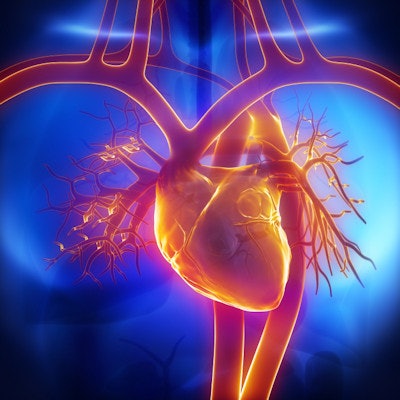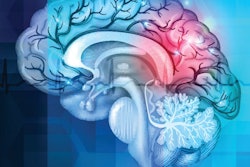
Coronary atherosclerosis -- detected on coronary CT angiography (CCTA) -- increases a person's risk of heart attack eight-fold, a study published on 28 March in the Annals of Internal Medicine has found.
The findings sound a warning to clinicians regarding monitoring patients with poor heart health.
"Coronary atherosclerosis may develop at an early age and remain latent for many years," wrote a team led by Dr. Andreas Fuchs, PhD, of Copenhagen University Hospital-Rigshospitalet in Denmark.
Fuchs and colleagues sought to define any characteristics of not-yet-apparent coronary atherosclerosis that could lead to heart attack, conducting a study that used data from the Copenhagen General Population Study (CGPS), which began in 2003 and recruited participants from the general population of Copenhagen, Denmark, to assess heart health.
This study included 9,533 asymptomatic patients ages 40 and over without known ischemic heart disease; each underwent CCTA, with exam readers blinded to treatment and outcomes. Fuchs and colleagues defined atherosclerosis by the percentage of luminal obstruction (non-obstructive or obstructive [i.e., ≥ 50% luminal stenosis] and nonextensive or extensive (i.e., one third or more of coronary tree). The research's primary outcome was heart attack.
The authors found the following:
- 54% of the study cohort had no subclinical heart atherosclerosis.
- 36% of the cohort had non-obstructive disease, while 10% had obstructive disease.
- In a median follow-up timeframe of 3.5 years, 193 people died and 71 had heart attacks.
- Adjusted relative risk of heart attack was higher in people with obstructive and extensive disease (9.2 and 7.7, respectively, with 1 as reference).
- People with obstructive/extensive subclinical atherosclerosis had an adjusted relative risk of heart attack of 12.5 (reference, 1), while those with obstructive/non-extensive disease had a risk of 8.3.
The study results shed further light on the connection between atherosclerosis and heart attack, according to Fuchs and colleagues.
"In asymptomatic persons, subclinical, obstructive coronary atherosclerosis is associated with a more than eight-fold elevated risk for myocardial infarction," they concluded.



















